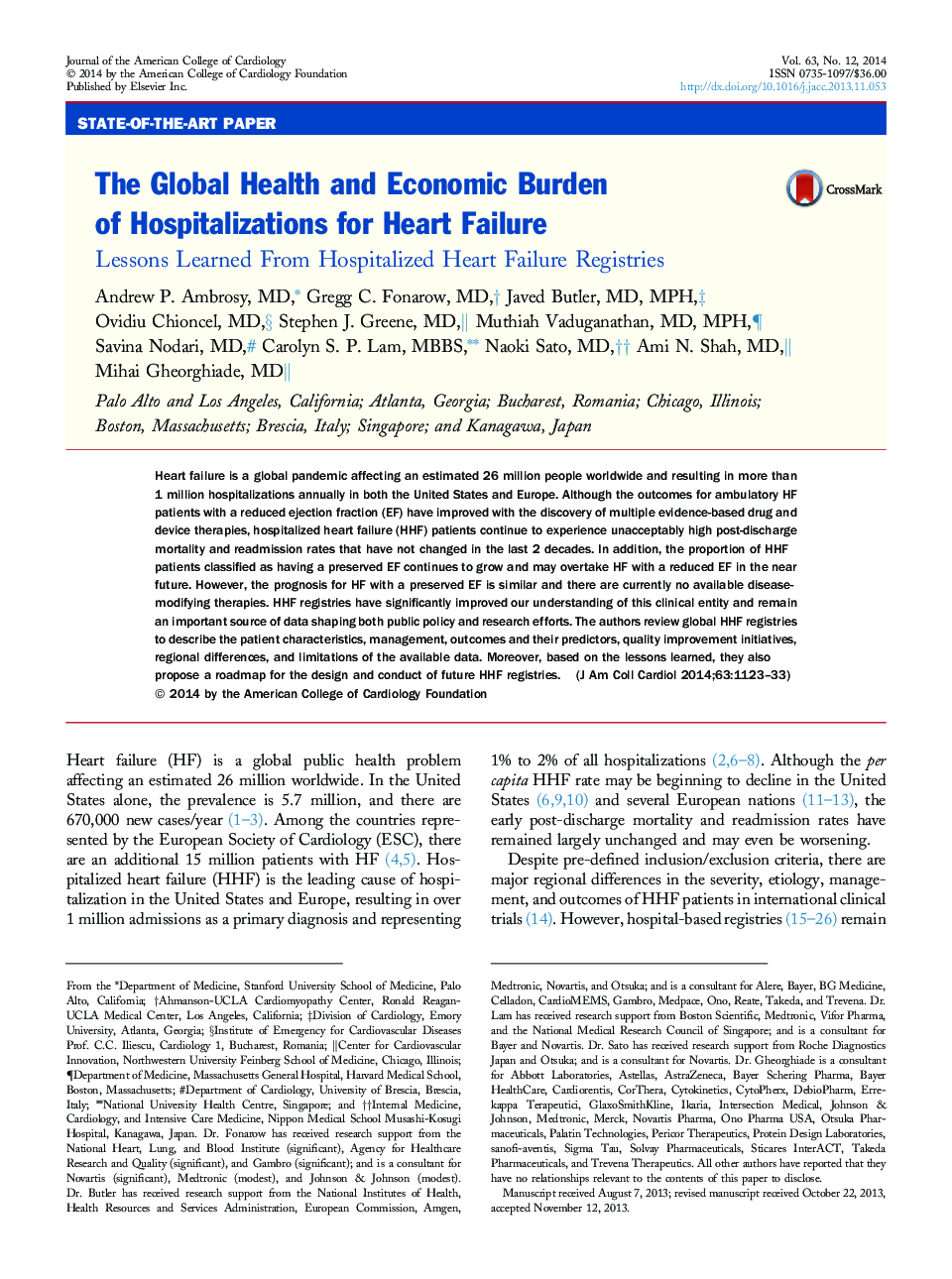| Article ID | Journal | Published Year | Pages | File Type |
|---|---|---|---|---|
| 5983141 | Journal of the American College of Cardiology | 2014 | 11 Pages |
Heart failure is a global pandemic affecting an estimated 26 million people worldwide and resulting in more than 1 million hospitalizations annually in both the United States and Europe. Although the outcomes for ambulatory HF patients with a reduced ejection fraction (EF) have improved with the discovery of multiple evidence-based drug and device therapies, hospitalized heart failure (HHF) patients continue to experience unacceptably high post-discharge mortality and readmission rates that have not changed in the last 2 decades. In addition, the proportion of HHF patients classified as having a preserved EF continues to grow and may overtake HF with a reduced EF in the near future. However, the prognosis for HF with a preserved EF is similar and there are currently no available disease-modifying therapies. HHF registries have significantly improved our understanding of this clinical entity and remain an important source of data shaping both public policy and research efforts. The authors review global HHF registries to describe the patient characteristics, management, outcomes and their predictors, quality improvement initiatives, regional differences, and limitations of the available data. Moreover, based on the lessons learned, they also propose a roadmap for the design and conduct of future HHF registries.
